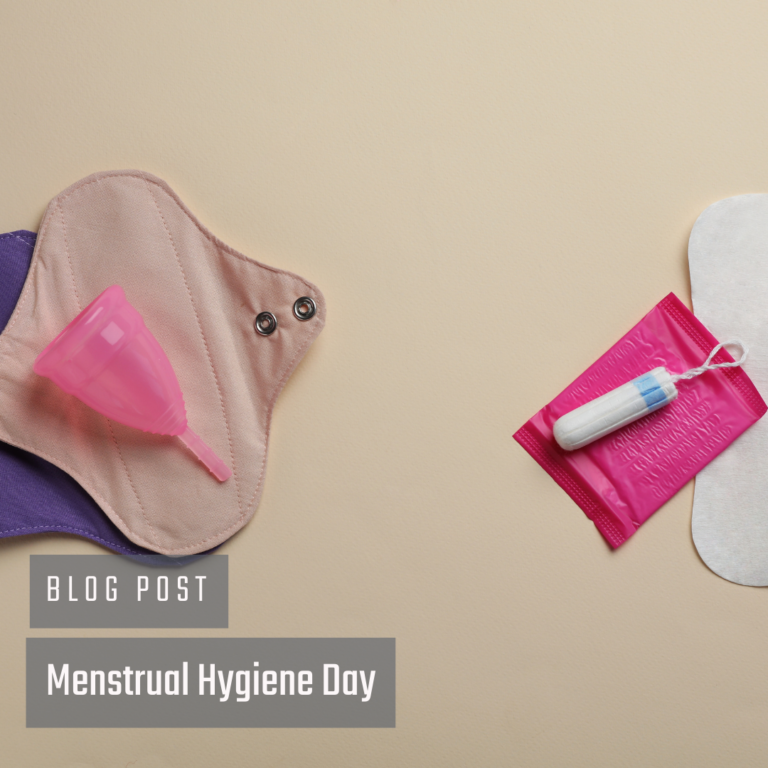May 28 is celebrated every year as World Menstrual Hygiene Day and this year’s theme is ‘Together for a Period-Friendly World’.
Despite being a natural biological process experienced by millions of women of reproductive age worldwide, menstruation is still associated with taboo, social stigma and lack of awareness in many parts of the world. This directly affects menstrual hygiene awareness, a problem further exacerbated by a lack of access to clean sanitation facilities, period-friendly toilets and affordable and safe menstrual products. Poor menstrual hygiene negatively affects the health, social status and well-being of those who menstruate. For example, poor menstrual hygiene can lead to urinary tract infections, resulting in possible birth complications and infertility, or in severe cases, pelvic inflammatory disease. In some parts of India, menstruating people are considered “impure” and “untouchable” for the days they have their periods. Similarly, many menstruating women, girls and people use ineffective methods to absorb menstrual blood, which limits them from participating in daily activities.
Therefore, managing menstrual hygiene is vital so that people of reproductive age can live safe, unrestricted and healthy lives.
SRHM actively supports the cause of raising awareness about menstruation and addressing the challenges of achieving menstrual hygiene. Several of our studies have focused on how the implementation of local reproductive health and education programs can improve menstrual hygiene and help break down taboos around this process.
An SRHM paper published in 2021, “Improving menstrual hygiene management among adolescent girls in tribal areas of Gujarat: an evaluation of an implementation model integrating the government service delivery system,” notes that most women and girls in rural India lacked awareness about menstrual hygiene management, access to sanitary products, and period-friendly facilities in schools, homes, and workplaces. This study, which was conducted in 202 villages in the Narmada district of Gujarat, discusses an intervention to develop menstrual health management corners and committees in schools and Anganwadi centers in the district. The intervention involved capacity building of 892 government health workers and frontline teachers, who supported increased access to menstrual pads and awareness. This resulted in improved awareness of the cause of menstruation, a reduction in school absenteeism due to menstruation, and a marked increase in the percentage of girls who started using clean and safe menstrual pads.
Another important resource published in the SRHM journal is a resource for improving menstrual hygiene around the world.Rafi: Menstruation Matters”. It is based on extensive research into the challenges menstruating people face and how to deal with them, especially in developing countries. The authors used this information to create this detailed manual, which provides practical guidance on how to ensure menstrual hygiene using new and existing effective methods.
Below is a list of documents on various aspects of menstrual hygiene preparation and management published by SRHM over the years:
2022
Coming of age: a qualitative study of adolescent girls’ readiness for menstruation in Palestinian refugee camps in the West Bank and Jordan
Ghandour, R., Hammoudeh, W., Giacaman, R., et al.
2021
Improving menstrual hygiene management among adolescent girls in tribal areas of Gujarat: an evaluation of an implementation model integrating the government service delivery system
Vayeda, M., Ghanghar, V., Desai, S., et al.
Menstrual health: a definition for policy, practice and research
Hennegan, J., Winkler, IT, Bobel, C., et al.
Searching for synergies: understanding the evidence linking menstrual health to sexual and reproductive health and rights
Wilson, LC, Rademacher, KH, Rosenbaum, J., et al.
2020
Exploring the menstruation-related challenges of young women in Uttar Pradesh, India, using the socio-ecological framework
McCammon, E., Bansal, S., Hebert, LE, et al.
2019
What is missing in MHM? Moving beyond hygiene to menstrual hygiene management
Thomson, J., Amery, F., Channon, M., & Puri, M.
2018
Rich, urban, educated. Who is represented in population-based surveys of women’s menstrual hygiene management?
Hennegan, J., Shannon, AK, & Schwab, KJ
2013
Shelf: Menstrual Hygiene Matters: a resource for improving menstrual hygiene around the world
by Sarah House, Thérèse Mahon, Sue Cavill
Co-published by WaterAid and 17 other organisations, 2012
www.wateraid.org/mhm
Improving quality of life with new menstrual hygiene practices among adolescent tribal girls in the state of Gujarat, India
Shah, SP, Nair, R., Shah, PP, et al.
